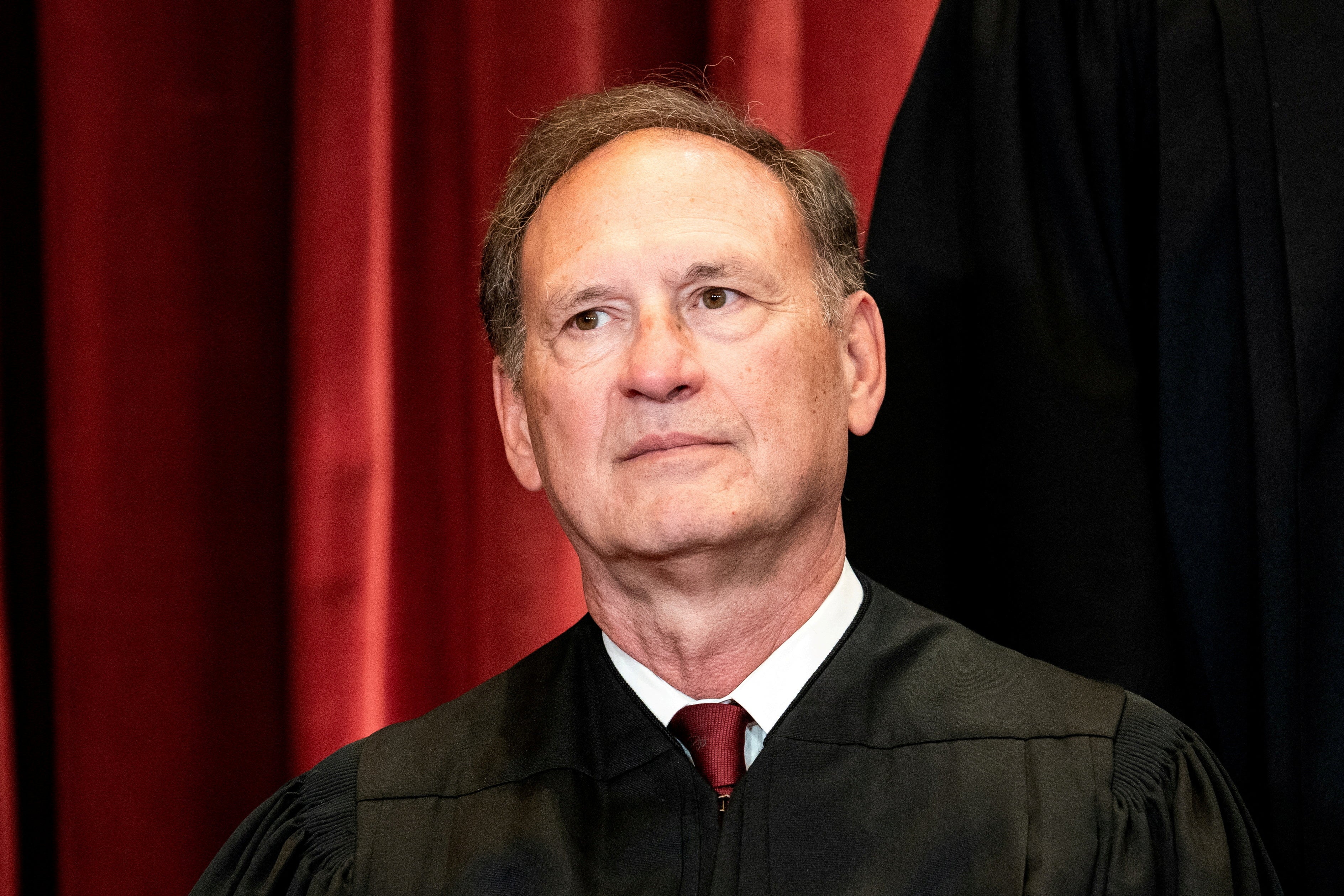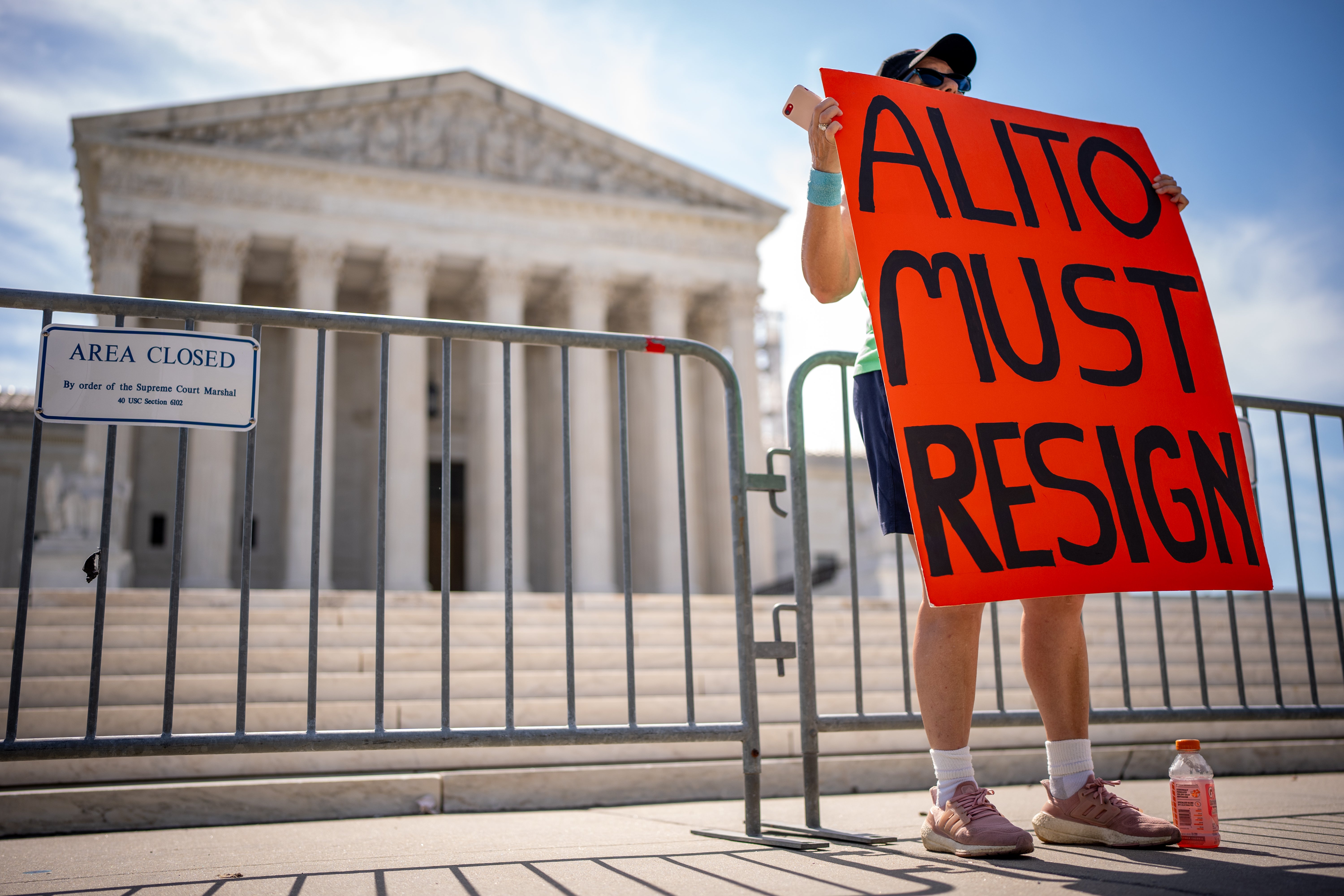Justice Alito slams Biden for ‘inflammatory’ comments in Supreme Court’s Covid disinformation case
His dissent accused the administration of ‘blatantly unconstitutional’ strong-arming to moderate content
Conservative Justice Samuel Alito blasted the Supreme Court for rejecting claims that President Joe Biden unlawfully coerced social media companies to remove disinformation on their platforms.
Alito, whose dissent was joined by justices Neil Gorsuch and Clarence Thomas, argued that the Biden administration impeded on the “free marketplace of ideas” by preventing “dissenting views” on Covid-19, posing a “serious threat” to the First Amendment.
In her opinion in Murthy v Missiouri for the court’s majority on Wednesday, Justice Amy Coney Barrett said Republican-led states and social media users had failed to show they were harmed by any government actions. She noted that social media platforms had strengthened their content moderation policies independently before any government agencies were even involved.
But Alito — calling the case one of the “most important free speech cases” in years — appeared to suggest that the Biden administration had strong-armed platforms and accused the president himself of “inflammatory” speech.
“What the officials did in this case was more subtle than the ham-handed censorship” found in other cases, Alito wrote, “but it was no less coercive.”
“And because of the perpetrators’ high positions, it was even more dangerous. It was blatantly unconstitutional, and the country may come to regret the Court’s failure to say so,” he added.
“If a coercive campaign is carried out with enough sophistication, it may get by. That is not a message this Court should send.”

In remarks from the White House in 2021, President Biden suggested that social media companies were “killing people” for allowing conspiracy theories to run rampant on platforms in the middle of a public health crisis.
He later clarified that he was addressing the relatively small groups of influential users and accounts on Facebook that produce a disproportionate amount of bogus claims about misinformation, and that “anyone listening to it is getting hurt by it.”
Alito called Biden’s remarks “inflammatory.”
His dissent walked through communications White House officials had with Facebook about its content moderation policies to suggest that something far more nefarious was taking place, using words like “interrogated,” “harangued” and “persistently hectored” to describe that correspondence.
“What these events show is that top federal officials continuously and persistently hectored Facebook to crack down on what the officials saw as unhelpful social media posts, including not only posts that they thought were false or misleading but also stories that they did not claim to be literally false but nevertheless wanted obscured,” according to Alito.

“And Facebook’s reactions to these efforts were not what one would expect from an independent news source or a journalistic entity dedicated to holding the Government accountable for its actions,” he added. “Instead, Facebook’s responses resembled that of a subservient entity determined to stay in the good graces of a powerful taskmaster.”
Biden administration officials “wielded potent authority” with “virtual demands, “and Facebook’s quavering responses to those demands show that it felt a strong need to yield,” Alito wrote.
The case was brought by Republican officials from Missouri and Louisiana, with epidemiologists who criticized public health measures, Covid conspiracy theorists and the owner of a right-wing media website.
They argued that social media companies, under the government’s direction, removed debunked claims about vaccine side effects and other Covid-related issues that dominated conspiracy theory-fueled debate during the pandemic.
“All these victims simply wanted to speak out on a question of the utmost public importance,” according to Alito.
Join our commenting forum
Join thought-provoking conversations, follow other Independent readers and see their replies
Comments
Bookmark popover
Removed from bookmarks